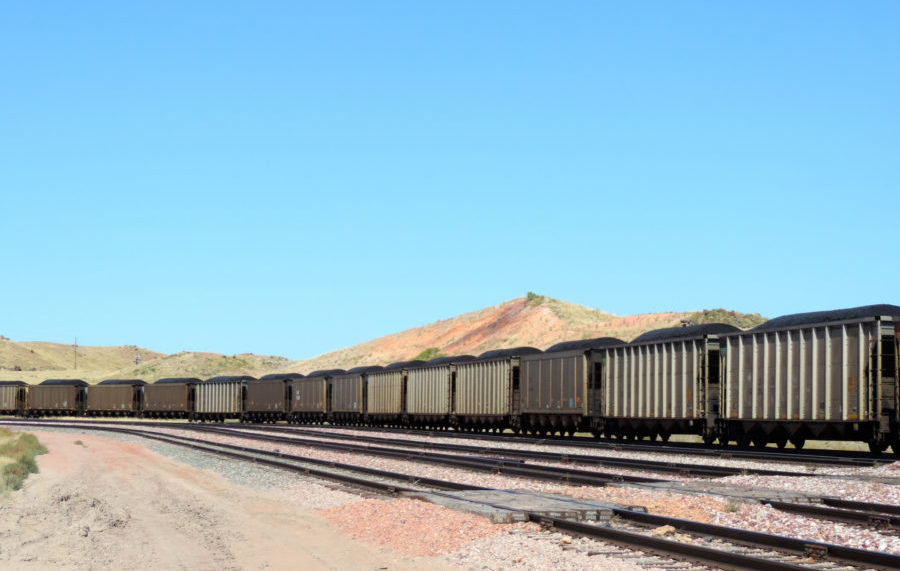Just a few days ago the news media buzzed over the revelations that the US Secretary of Commerce had concealed his business ties to Vladimir Putin. And many press accounts prominently mentioned a name I’d heard before: Gennady Timchenko, a Putin crony and former co-CEO of a multinational commodity trading firm.
I’m hardly a Kremlinologist, so how on earth had I heard of Timchenko? From researching something surprisingly close to home: the finances of Pacific Northwest coal exports. I discovered a few years back that Timchenko’s company had bought a share of a Montana coal mine that exports through the Westshore terminal in Vancouver, BC. And because of Timchenko’s widely-reported ties to Putin, it struck me as plausible that some small share of the profits from his firm’s Montana coal exports wound up in the pockets of one of world’s most unsavory kleptocrats.
In case you’re curious about the details, I invite you to don your tinfoil hat and read on.
- After the publication of the so-called Paradise Papers—which revealed details of the hyper-wealthy’s search for global tax havens—Wilbur Ross, the US Secretary of Commerce, came under fire for his previously unreported business connections to a giant Russian petrochemical company called Sibur. (He also apparently lied about being a billionaire, but that’s a different story.) The Guardian sums up the controversy:
Leaked documents and public filings show Ross holds a stake in a shipping company, Navigator, through a chain of offshore investments. Navigator operates a lucrative partnership with Sibur, a Russian gas company part-owned by Kirill Shamalov, the husband of Putin’s daughter Katerina Tikhonova.
Ross…retained holdings in Navigator after taking office this year. The relationship means he stands to benefit from the operations of a Russian company run by Putin’s family and close allies, some of whom are under US sanctions.
- Russian billionaire Gennady Timchenko, who happens to be a former judo sparring partner of Putin’s, controls about 15 percent of Sibur. Researchers with the US State Department believe that Putin has entrusted some of his personal wealth with Timchenko—suggesting that Timchenko’s business holdings serve as a de facto money laundering operation for the Russian president. After Russia invaded Crimea in March 2014, the US State Department went so far as to place sanctions on Timchenko to put pressure on the Russian government. A month later, the State Department sanctioned at least 14 additional companies and banks linked to Timchenko.
- Timchenko built his fortune as a co-founder of a global commodity trading company called The Gunvor Group. Gunvor, like Timchenko’s other business ventures, apparently served as a covert piggy bank for Putin. According to the US State Department:
Timchenko’s activities in the energy sector have been directly linked to Putin. Putin has investments in Gunvor and may have access to Gunvor funds.
- Timchenko allegedly sold his stake in Gunvor just before the State Department levied sanctions in March 2014. But Gunvor didn’t actually sever all financial ties with Timchenko until June 2016. And besides, Timchenko sold his Gunvor stake to his longtime business partner and co-CEO, an expatriate Swedish billionaire named Torbjörn Törnqvist—who, incidentally, may have gotten Gunvor involved in a Belarusian oil smuggling scheme. So it was never really clear when, or whether, Timchenko truly extricated himself from his former business.
OK, that’s the background. So here’s where West Coast coal exports come into play:
- In late 2011, the Gunvor Group bought a one-third stake in the Signal Peak mine in Montana through a wholly owned subsidiary, the innocuously-named Pinesdale LLC. (The other two-thirds of Signal Peak is owned by an equally colorful cast of characters that includes billionaire heir and ex-playboy Wayne Boich, chairman and CEO of the Boich Companies.)
- Signal Peak, in turn, ships coal through the Westshore coal terminal in Southwest BC. It typically ranks either first or second among US thermal coal companies exporting through Westshore, which is North America’s busiest coal terminal.
- According to the Boich companies, Signal Peak now exports 99 percent of the coal it produces. I have to presume that Gunvor—as a commodities trading firm—is the company that’s actually marketing Signal Peak coal and securing export contracts. Gunvor itself says that “Gunvor’s trading expertise adds considerable value to the mine.”
So that’s about it: Putin is linked to Timchenko, who co-owned Gunvor, which co-owns Signal Peak and arranges for its coal to be shipped through Westshore. All of which suggests that if Signal Peak ever made money from its Westshore shipments, those profits may ultimately have enriched Vladimir Putin—infinitesimally boosting his already astonishing wealth.
I hope this doesn’t sound too much like a wacky conspiracy theory, and I certainly don’t want to pretend that the Russia-Westshore connection is some sort of scandal. Still, the story serves as a weird and quirky reminder that the fossil fuel economy is chock full of shady dealings—and that its profits often wind up in the hands of some mighty unsavory characters.
[list_signup_button button_text=”Like what you|apos;re reading? Get our latest fossil fuel research here.” form_title=”Fighting Fossil Fuels” selected_lists='{“Fighting Fossil Fuels”:”Fighting Fossil Fuels”}’ align=”center”]


Comments are closed.